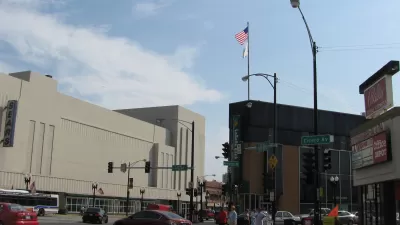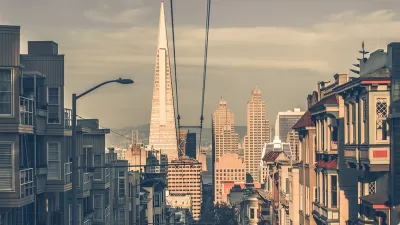Chicago has a reputation for being the most development-friendly city this side of Houston. But Stephen J. Smith cites restrictive zoning outside the Loop as one cause of the city’s anemic housing market.
“For pro-development types, Chicago is often thought of as something of a promised land. While it may not have Houston’s complete lack of a zoning code, the Second City is known as a much easier place to build than its coastal counterparts,” writes Stephen J. Smith.
Smith’s recent article in Next City, however, argues that outside of the Loop, Chicago’s zoning regulations are actually slowing the growth of the city’s housing stock in a manner not in keeping with the city’s reputation.
The city’s lax development regulations are often credited with keeping housing prices low. In fact, condo prices in New York City are often twice as expensive as condo prices in Chicago. But complicating the traditional narrative is the curious case of Lincoln Park, which has actually lost housing in recent years—almost apace with parts of the Southside currently engaged in a vacant lot fire sale.
Smith reminds readers: “it’s important not to forget the mid-rises and infill housing that aren’t going up in some of the most desirable, more established neighborhoods.”
FULL STORY: Is Chicago Still the Urban Development Promised Land?

Alabama: Trump Terminates Settlements for Black Communities Harmed By Raw Sewage
Trump deemed the landmark civil rights agreement “illegal DEI and environmental justice policy.”

Planetizen Federal Action Tracker
A weekly monitor of how Trump’s orders and actions are impacting planners and planning in America.

Why Should We Subsidize Public Transportation?
Many public transit agencies face financial stress due to rising costs, declining fare revenue, and declining subsidies. Transit advocates must provide a strong business case for increasing public transit funding.

Understanding Road Diets
An explainer from Momentum highlights the advantages of reducing vehicle lanes in favor of more bike, transit, and pedestrian infrastructure.

New California Law Regulates Warehouse Pollution
A new law tightens building and emissions regulations for large distribution warehouses to mitigate air pollution and traffic in surrounding communities.

Phoenix Announces Opening Date for Light Rail Extension
The South Central extension will connect South Phoenix to downtown and other major hubs starting on June 7.
Urban Design for Planners 1: Software Tools
This six-course series explores essential urban design concepts using open source software and equips planners with the tools they need to participate fully in the urban design process.
Planning for Universal Design
Learn the tools for implementing Universal Design in planning regulations.
Caltrans
Smith Gee Studio
Institute for Housing and Urban Development Studies (IHS)
City of Grandview
Harvard GSD Executive Education
Toledo-Lucas County Plan Commissions
Salt Lake City
NYU Wagner Graduate School of Public Service





























